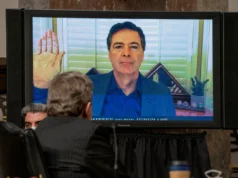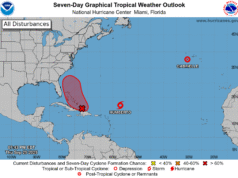
The state Agency for HealthCare Administration (AHCA) dropped its third Medicaid procurement of the year, the latest to test pilot the managed care delivery system for people with developmental and intellectual disabilities who live in Medicaid Regions D and I.
Interested parties have until Dec. 8 to submit their responses to the Comprehensive Intellectual and Developmental Disabilities (CIDD) Managed Care Pilot Program invitation to negotiate (ITN).
AHCA intends to negotiate with interested managed care plans Jan. 22-26 and post the names of the vendors it wants to award contracts to Jan 31. AHCA intends to issue one contract for each region.

According to the ITN, only managed care plans awarded Medicaid managed long-term care contracts are eligible to participate in the new managed care pilot program.
In an attempt to keep people with intellectual and developmental disabilities out of institutions, Florida created the Medicaid iBudget program. Enrollees are provided with a budget and can procure the home and community-based services they require to keep them living in the community and outside of an institution.
According to the ITN, there are currently approximately 35,000 Floridians enrolled in the iBudget and roughly another 22,000 individuals on a waiting list for services.
While funded with Medicaid dollars, the iBudget program is one of the few safety net programs not administered through Medicaid managed care. For years, there has been an effort to roll iBudget into Medicaid managed care, but advocates and former legislative leaders beat it back.
Lawmakers last year passed SB 2510, which authorized the state to test whether managed care would work for people with intellectual and developmental disabilities. House Speaker Designate Danny Perez championed the move.
The pilot will be open to people residing in Medicaid Regions D or I who are 18 years or older and on the iBudget waitlist. The initial enrollment phase will include enrollment of up to 600 slots. Specific goals for this Pilot Program include:
— Maximizing managed care flexibility to provide additional services.
— Increase access to providers and services.
— Maintain the highest quality of care coordination and person-centered care plans.
— Increasing opportunities for community integration.
While lawmakers only included one year of funding for the pilot, the ITN anticipates the contracts will remain in effect through Sept. 30, 2030.
In addition to the Medicaid CIDD ITN, AHCA released its Medicaid managed care ITN and a Medicaid dental ITN this year.
___
I welcome your feedback, questions and especially your tips. You can email me at SextonHealthNewsletter@gmail.com or call me at 850-251-2317.
— Abortion rights —
Organizers behind a proposed initiative on abortion rights are calling the passage of a measure in Ohio a sign of things to come in Florida.
It’s also been seen by many national political observers that abortion rights continue to be a driving force a year after the U.S. Supreme Court overturned Roe v. Wade.
Voters in Ohio, which has a Republican Governor who signed into law a six-week abortion ban, on Tuesday overwhelmingly approved a constitutional amendment that protects reproductive decisions, including the right to abortion. It allows the state to restrict abortion after fetal viability with exceptions for the life of the mother.

Florida voters in 2024 may get a chance to decide whether to protect abortion rights up until viability. So far, those backing the amendment have collected nearly 492,000 verified signatures. They have until February to get just under 900,000 signatures.
“The win in Ohio gives us further insight into how we can win in Florida, including early organizing and fundraising,” said Lauren Brenzel, campaign director for Floridians Protecting Freedom, the committee working on the initiative. “The Ohio ballot initiative began its organizing efforts in March of this year, nearly a year later than Floridians Protecting Freedom began organizing.”
Brenzel added, “Our campaign has the time, resources and momentum to win. Tonight’s victory in Ohio only strengthens our resolve to return the freedom to make decisions about abortion to the people of Florida, where it belongs.”
The Florida amendment, however, still needs to get cleared by the Florida Supreme Court to make the ballot. Attorney General Ashley Moody contends that the initiative is misleading and should be blocked. Organizers sharply disagree and claim Moody is making “disingenuous” arguments.
— Pot amendment —
Some justices on the Florida Supreme Court are publicly expressing skepticism to arguments that a proposed initiative legalizing recreational marijuana should be kept from the 2024 ballot.
The Supreme Court is charged with reviewing whether or not the proposed amendment sticks to a single subject and whether the ballot summary is misleading. The court review is the last major hurdle left for organizers. Smart and Safe Florida, the committee backing the proposal, has already collected more than 1 million verified voter signatures.
During an hourlong hearing, justices peppered lawyers for both Moody and the Florida Chamber of Commerce about their legal arguments on why the measure should be tossed.
At one point, Chief Justice Carlos Muniz contended that the points made by Jeffery DeSousa, the Chief Deputy Solicitor General, were “super lawyerly.” He questioned how it applied to a voter trying to understand the amendment.

Justice John Couriel also questioned the opinion that voters would fail to understand that recreational marijuana would remain illegal under federal law. He said it was in the text of the measure.
“Where’s the hidden ball?” Couriel said.
Later in the hearing, Justice Charles Canady took issue with the argument made by Sam Salario, an attorney representing the Chamber, regarding whether or not the amendment’s wording would violate the single-subject requirement because it would allow both the sale and possession of recreational marijuana.
Canady suggested the interpretation put forward by the Chamber would turn into a “straitjacket on the people.”
“We might think that the people would be making an unwise choice, but that’s a different question than whether the constitution prohibits them from effectively acting in this arena,” Canady said.
Justice Meredith Sasso questioned some of the logic asserted by John Bash, a Smart & Safe Florida lawyer. But Bash repeatedly told justices the measure was carefully worded to follow the “road map” included previous rulings handed down by the court in recent years on other proposed constitutional amendments.
— Data, but no solutions —
The Department of Health had plenty of data to share with House Healthcare Regulation Committee members on Wednesday.
But DOH Division of Public Health Statistics and Performance Management Director Emma Spencer was all statistics and not much else, which prompted committee member Rep. Kelly Skidmore to offer: “You are the Department of Health, and we need answers from you on how we can fix (health care workforce issues). We’re not all experts, but we’re here to help. And you’re giving us data and nothing to do with it.”

According to a 2022 physician workforce study, 58,062 physicians provided direct primary care to patients, a 33.8% increase since 2012 for an average annual growth of about 3.8%; Spencer said nothing that the state’s population has increased by 15% during that same period.
Administered by the DOH to physicians during the biennial licensure process, the 2022 survey shows that of the 58,062 physicians providing direct primary care, 14,658 doctors were between the ages of 50-59, 14,525 were between the ages of 40-49 and 9,743 were under the age of 40.
According to national data from the Association of American Medical Colleges, Florida ranks 25th among the 50 states in the number of active physicians per 100,000 people, with a rate of 273.9.
Spencer said state data showed that Miami-Dade County has the most significant number of physicians in the state, with 8,486. However, the highest rate of physicians per capita is in Palm Beach County, with 327.4, followed by Hillsborough (323.2), Orange (319.8), Miami-Dade (296.6) and Broward (270.9).
She also told the committee that 5% said they would move out of state. A third (34%) cited family as the main reason.
When House Healthcare Regulation Committee member (and physician by trade) Rep. Joel Rudman asked about physician reimbursement rates in Florida and whether low rates — he didn’t specify Medicaid or commercial — impacted physicians’ decisions to practice in Florida.
He also asked about noncompete clauses impacting Florida physicians. Rudman filed legislation to ban noncompete clauses.
Spencer had no answers.
Disclaimer
The information contained in South Florida Reporter is for general information purposes only.
The South Florida Reporter assumes no responsibility for errors or omissions in the contents of the Service.
In no event shall the South Florida Reporter be liable for any special, direct, indirect, consequential, or incidental damages or any damages whatsoever, whether in an action of contract, negligence or other tort, arising out of or in connection with the use of the Service or the contents of the Service. The Company reserves the right to make additions, deletions, or modifications to the contents of the Service at any time without prior notice.
The Company does not warrant that the Service is free of viruses or other harmful components












